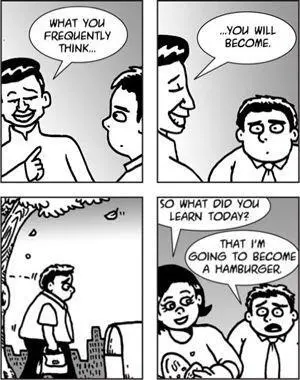Tan, Chade-Meng - Search Inside Yourself - The Unexpected Path to Achieving Success, Happiness (and World Peace)
Здесь есть возможность читать онлайн «Tan, Chade-Meng - Search Inside Yourself - The Unexpected Path to Achieving Success, Happiness (and World Peace)» — ознакомительный отрывок электронной книги совершенно бесплатно, а после прочтения отрывка купить полную версию. В некоторых случаях можно слушать аудио, скачать через торрент в формате fb2 и присутствует краткое содержание. Год выпуска: 2012, Издательство: Harper Collins, Inc., Жанр: Старинная литература, на английском языке. Описание произведения, (предисловие) а так же отзывы посетителей доступны на портале библиотеки ЛибКат.
- Название:Search Inside Yourself: The Unexpected Path to Achieving Success, Happiness (and World Peace)
- Автор:
- Издательство:Harper Collins, Inc.
- Жанр:
- Год:2012
- ISBN:нет данных
- Рейтинг книги:4 / 5. Голосов: 1
-
Избранное:Добавить в избранное
- Отзывы:
-
Ваша оценка:
- 80
- 1
- 2
- 3
- 4
- 5
Search Inside Yourself: The Unexpected Path to Achieving Success, Happiness (and World Peace): краткое содержание, описание и аннотация
Предлагаем к чтению аннотацию, описание, краткое содержание или предисловие (зависит от того, что написал сам автор книги «Search Inside Yourself: The Unexpected Path to Achieving Success, Happiness (and World Peace)»). Если вы не нашли необходимую информацию о книге — напишите в комментариях, мы постараемся отыскать её.
Search Inside Yourself: The Unexpected Path to Achieving Success, Happiness (and World Peace) — читать онлайн ознакомительный отрывок
Ниже представлен текст книги, разбитый по страницам. Система сохранения места последней прочитанной страницы, позволяет с удобством читать онлайн бесплатно книгу «Search Inside Yourself: The Unexpected Path to Achieving Success, Happiness (and World Peace)», без необходимости каждый раз заново искать на чём Вы остановились. Поставьте закладку, и сможете в любой момент перейти на страницу, на которой закончили чтение.
Интервал:
Закладка:
Here is a joke I came across a long time ago.
Once upon a time, a disciple asked, “Master, is half the holy life associating with people?”
The master replied, “No, the whole of holy life is associating with people.”
This joke probably started as a misreading of a famous Buddhist story in which the Buddha told Ananda that friendships with “admirable people” are not half of holy life, but the whole of holy life. Over time, however, I found the humorous apocryphal version to be deeply insightful. In the context of emotional intelligence, I think that associating with people is where the proverbial rubber meets the road (“Hi rubber!” “Hello road!”).
So, congratulations on completing the intrapersonal intelligence chapters of this book, and welcome to interpersonal intelligence—black-belt territory.
Empathy, the Brain, and Monkey Business
I find it very funny that one of the most important discoveries in neuroscience was accidentally made when somebody picked up food in front of a monkey.
A group of neurophysiologists at the University of Parma, Italy, placed electrodes in a monkey’s brain to record neural activity. 1They found that some neurons fired every time the monkey picked up a piece of food. As part of the monkey business of science, researchers sometimes had to pick up food to give to the monkey, and when they did, they were surprised to find those same neurons fired in the monkey’s brain. Further investigation revealed the existence of something called “mirror neurons.” These are brain cells that fire both when the animal is performing an activity and also when it watches another animal perform the same activity. Not surprisingly, evidence was later discovered that strongly suggested the human brain contains these mirror neurons as well.
Some scientists suggest that mirror neurons form the neural basis of empathy and social cognition. The scientific evidence backing that claim is not (yet) conclusive, but either way, mirror neurons offer a fascinating glimpse into the social nature of the human brain. It is as if the brain was designed with other people in mind (excuse the pun), right down to the level of individual neurons. 2

Another fascinating glimpse into empathy at the neural level is revealed by the way the brain reacts to the pain of other people. When you are given a painful stimulus, parts of your brain nicknamed the “pain matrix” light up. If, instead of receiving the painful stimulus, you observe a loved one receiving it, your own pain matrix still lights up. 3In a very real way, in your brain, you are experiencing their suffering. You do not necessarily experience the same sensory input, but you share a similar affective experience. This is the neural foundation of compassion. The very word compassion comes from the Latin words for “suffering together.” Even without us putting in any effort, our brains are already pre-wired for empathy and compassion, at least for loved ones.
Brain Tango
There is a fascinating relationship between self-awareness and empathy. If you are strong in self-awareness, you are also very likely to be strong in empathy. The brain seems to use the same equipment for both tasks. Specifically, both qualities seem to have a lot to do with the part of the brain known as the insula. The insula is related to the ability to experience and recognize bodily sensations. People with very active insulae, for example, can become aware of their own heartbeats. What is really interesting is scientific evidence suggesting that people with active insulae also tend to have high empathy. 4
How does that work? The work of famed psychologist John Gottman and his collaborators offers an interesting hint. Gottman is famous for his pioneering work on marital stability and relationship analysis. His expertise is legendary, and he is reputed to be able to accurately predict if a marriage will end in divorce within ten years just by observing a fifteen-minute conversation between the couple. Much of Gottman’s research work involves getting a couple into a room, hooking them up to equipment that records their physiological signals, and getting the couple to talk to each other (for example, about a topic on which they disagree) while being videotaped. Later, each spouse also watches the video separately and rates how he or she felt during each stage of the conversation. These experiments yield a treasure trove of data, with a videotape of each conversation, first-person ratings of how each participant felt during the conversation, and physiological data.
In an interesting experiment, Gottman’s collaborator, Robert Levenson, had a third subject (let’s call her the “rater”) view some of the videos from above and rate how one of the subjects in the video felt at each stage during the conversation. 5In this experiment, the empathy of the rater was measured: the more accurately the rater rated the feeling of the subject, the more empathy she demonstrated. The most interesting part of this experiment concerned the rater’s physiological signals, which were also measured during the session. The finding: the better the rater’s physiology matched the target’s, the more accurately she rated the target’s feelings.

“Really? What gives you the idea that my husband is capable of empathy?”
In other words, empathy works by having you physiologically mimic the other person. The word Daniel Goleman uses to describe this phenomenon is entrainment . 6He also calls it an “emotional tango.” Entrainment is the reason empathy is so closely related to self-awareness: the brain uses its self-awareness equipment for empathy. In fact, you can even say that empathy relies on self-awareness, and if our self-awareness is weak, our empathy will be weak too.
One important implication of this insight is that, oftentimes, practices that develop self-awareness also simultaneously develop empathy. For example, bringing mindful attention to your body (for instance, using the Body Scan exercise in Chapter 4) is known to strengthen the insula, and by doing so, it improves both self-awareness and empathy at the same time. Two for the price of one!
Empathy Is Not Psychologizing or Agreeing
Empathy is often confused with something called “psychologizing,” or speculating in psychological terms or on psychological motivations, often in an uninformed way. For example, let’s say you are explaining your problems to your boss, and midway through, your boss interrupts you to explain how your problems have to do with your presumed childhood issues and some other things he might have read about in pop psychology. He is psychologizing, not empathizing. When we psychologize, we are actually dismissing the problem, not understanding it. Unsurprisingly, psychologizing has been linked to mediocre performance in managers. I imagine that managers who psychologize routinely may start growing pointy hair like Dilbert’s pointy-haired boss. If, instead, your boss listens intently to you with his full attention, tries to understand what your problem means to you at both a cognitive and a visceral level, and does all that with kindness, he is empathizing.

“I’m demoting you because you have unresolved issues with your mother.”
Empathy does not necessarily mean agreeing. It is possible to understand another person at both an intellectual and a visceral level with kindness, and still respectfully disagree. Aristotle said, “It is the mark of an educated mind to be able to entertain a thought without accepting it.” Disagreeing with empathy is a lot like that. It is the mark of a developed mind to be able to understand and accept another’s feeling without agreeing to it.
Читать дальшеИнтервал:
Закладка:
Похожие книги на «Search Inside Yourself: The Unexpected Path to Achieving Success, Happiness (and World Peace)»
Представляем Вашему вниманию похожие книги на «Search Inside Yourself: The Unexpected Path to Achieving Success, Happiness (and World Peace)» списком для выбора. Мы отобрали схожую по названию и смыслу литературу в надежде предоставить читателям больше вариантов отыскать новые, интересные, ещё непрочитанные произведения.
Обсуждение, отзывы о книге «Search Inside Yourself: The Unexpected Path to Achieving Success, Happiness (and World Peace)» и просто собственные мнения читателей. Оставьте ваши комментарии, напишите, что Вы думаете о произведении, его смысле или главных героях. Укажите что конкретно понравилось, а что нет, и почему Вы так считаете.







![Chade-Meng Tan - Search Inside Yourself - Increase Productivity, Creativity and Happiness [ePub edition]](/books/703803/chade-thumb.webp)



